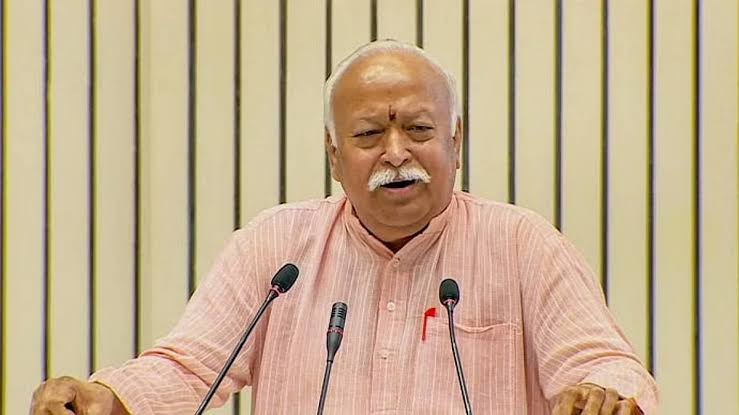Table of Contents
ToggleA Subtle Signal or General Observation?
RSS chief Mohan Bhagwat, in a recent public appearance, remarked that those who turn 75 should step aside and make way for younger leadership. He framed the statement with a touch of humor, referencing how a shawl offered at 75 is often a symbolic gesture for retirement.
The timing of his remark has sparked widespread speculation, particularly because Prime Minister Narendra Modi turns 75 this September. The proximity of their birthdays and their roles in the Sangh Parivar ecosystem has lent added weight to the statement.
Opposition Reacts Swiftly
Leaders from opposition parties were quick to interpret Bhagwat’s remark as a veiled message aimed at the Prime Minister. Some pointed out that Modi himself had previously endorsed the idea of retirement at 75 by sidelining senior party veterans. Now, they argue, the same principle should apply across the board.
Critics also raised questions about consistency—whether age-based retirement norms apply only selectively or uniformly to all leaders. The remark has been viewed as opening a broader debate around political continuity, succession, and internal democracy within the ruling establishment.
BJP’s Stand on Leadership Age Limits
The BJP has consistently maintained that it has no formal retirement age outlined in its constitution. While the party has historically kept leaders above 75 from contesting elections or holding active ministerial roles, exceptions have been made for top leadership positions.
Party officials have publicly reaffirmed that there are no plans to change the current leadership structure, and that age should not be the only determinant of one’s ability to lead effectively.
RSS, BJP, and the Age Debate
Mohan Bhagwat’s remark has reignited ongoing discussions about succession planning within Indian politics. Traditionally, RSS leaders have continued in their roles beyond 75, stepping aside only due to health or personal choice. However, the Sangh has also long promoted generational renewal and youth-led leadership.
The informal precedent of treating 75 as a turning point—within both RSS and BJP—has shaped leadership decisions in the past. Whether this will influence the current top leadership remains uncertain but is now under greater public scrutiny.
Broader Political Implications
The episode holds broader implications for India’s political landscape:
| Factor | Impact |
|---|---|
| Leadership Transition | Raises questions about age limits in leadership roles |
| Institutional Norms | Reignites debate on formal vs informal succession rules |
| Political Messaging | Influences public sentiment around continuity vs change |
| Party Cohesion | Tests alignment between RSS philosophy and BJP execution |
The buzz created by the remark is less about immediate political change and more about how parties define longevity, responsibility, and transition in leadership.
A Moment That Could Define the Next Five Years
As both Mohan Bhagwat and Prime Minister Modi approach the age of 75, the conversation on leadership tenure gains renewed relevance. Whether Bhagwat’s comment was a philosophical observation or a pointed nudge, it has catalyzed important national conversations.
Going forward, attention will remain sharply focused on how India’s leading political organizations balance continuity with change—and whether symbolic gestures evolve into policy shifts or remain rhetorical markers in the broader narrative of power and succession.
Also Read : Earthquake in Delhi: 4.1 Magnitude Quake Shakes NCR, No Damage Reported
